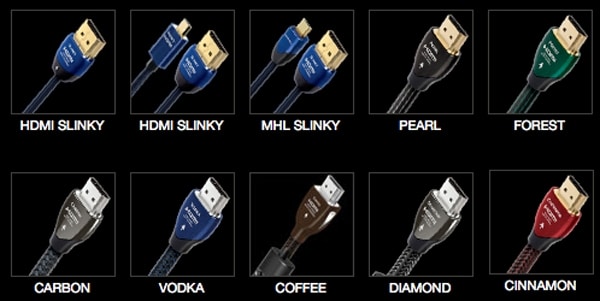An open letter from myself and AudioQuest to the community—to everyone who cherishes the truth, regardless of their opinions about audio and digital cables, regardless of their opinions about AudioQuest.
For good reason, there is growing internet “buzz” about the recently published findings of Mark Waldrep on his Real HD-AUDiO blog.
Mark’s findings are very relevant, and the implied malfeasance is extremely serious.
I was first made aware of Mark’s post this last Friday, January 22. I immediately wrote to everyone at AudioQuest who either is in contact with Home Entertainment by D-Tronics (the store in Texas which created and posted the video in question), or who manages that relationship, or is involved in any way with our communication with the world at large.
Home Entertainment was contacted immediately, and was informed that there were legitimate questions about the veracity of the video. We asked that the video be taken down, and that we learn everything possible about the production of the video, and that AudioQuest be given the opportunity to analyze the video ourselves.
The video was taken down—however, unfortunately, despite repeated and insistent communication from AudioQuest, neither the dealer nor the production house they used have provided us with the promised password and/or link to the video. Adan Garcia, the manager at Pollux Castor, the production house, told AudioQuest that he didn’t have time to look into our situation—so all we have is our memory of the video. If we ever are given access, we will no longer be certain that it was the same video as previously posted.
I have already waited too long to make a statement—I cannot wait any longer. I would much prefer to be reporting on AudioQuest’s investigation, reporting that either Mark’s results cannot be duplicated, or thanking Mark for having brought to light a serious misdeed. Unfortunately, without the video to diagnose, I can only openly speculate and describe my and AudioQuest’s operative assumptions.
Backing up about a year, to when the video was created—I saw and heard the video. I found the audio difference “unbelievable”. I asked for verification that that there had not been any enhancement or manipulation. The dealer was contacted, and AudioQuest was assured that the video was honest and included no alteration. Maybe I was an optimistic sucker, hoping too hard that the seemingly impossible was possible—after all, playing these cables into a flat-panel TV and listening through the TV’s pathetic built-in speakers does reveal obvious audible differences, but that this magnitude of real-world audible difference should be seemingly even more obvious in a compressed video was astonishing.
In any case, AudioQuest did not object to the video, though AudioQuest also did nothing to publicize the video—it was not done by us or for us, and AudioQuest did not itself consider this video as a promotional opportunity. It was not posted on the AudioQuest Facebook page or otherwise used by AudioQuest in any way.
Digressing for a moment: Back in the days when S-Video was king, it was delightfully easy to switch between cables and show profound differences in video quality, but as much as I wanted to be able to place ads showing this difference, it was impossible to take a photo which showed the difference. The problem was that the damage done by a lesser S-Video cable was dynamic, as is the viewing experience, so I accepted reality and gave up. I did not even try to show a representative simulation. Had it already been the internet age, I could have posted an authentic undoctored video which would have shown what so many clearly saw at CEDIA. At the dawn of the internet age, Component video cable differences were as obvious, but no YouTube and only dial-up—nah.
So here I am today, engaging in damage control. Until AudioQuest is given the opportunity to examine evidence which contradicts Mark’s findings, my operative assumption is that Mark has truly discovered a lie, and that Mark has to the best of his ability, broadcast the truth about this lie.
Whether AudioQuest will initiate legal proceedings against those responsible for the video in question, against those who have misrepresented AudioQuest, is yet to be determined. Until we learn more, and until proven otherwise, our operative assumption is that Mark is the good guy, that AudioQuest is the victim, and that the perpetrators need to be censored. Possibly well-meaning intentions to make the truth more evident don’t count. An exaggerated truth is in fact a lie.
Credibility is always a most precious phenomenon. That many audio products, that many products in general, deserve skepticism is a given. It is a shame for AudioQuest and for the whole audio industry to witness apparent evidence of such deceit and misinformation. However, an exception, even if there are also other exceptions, doesn’t disprove the honorability of the industry in general.
My personality is such that I’m always crying “foul” over unrealistic claims, about representations of video or photographic differences which are obviously false, impossible laundry detergent claims or whatever. I have to close with a mea culpa for damping down my own on-record skepticism about the Home Entertainment video. I’m sorry for all of us who care about our separate and collective credibility.—William E. Low
Owner/AudioQuest
Read more at http://www.stereophile.com/content/open-letter-bill-low-audioquest#xHXUbERdQdUFhuYp.99







